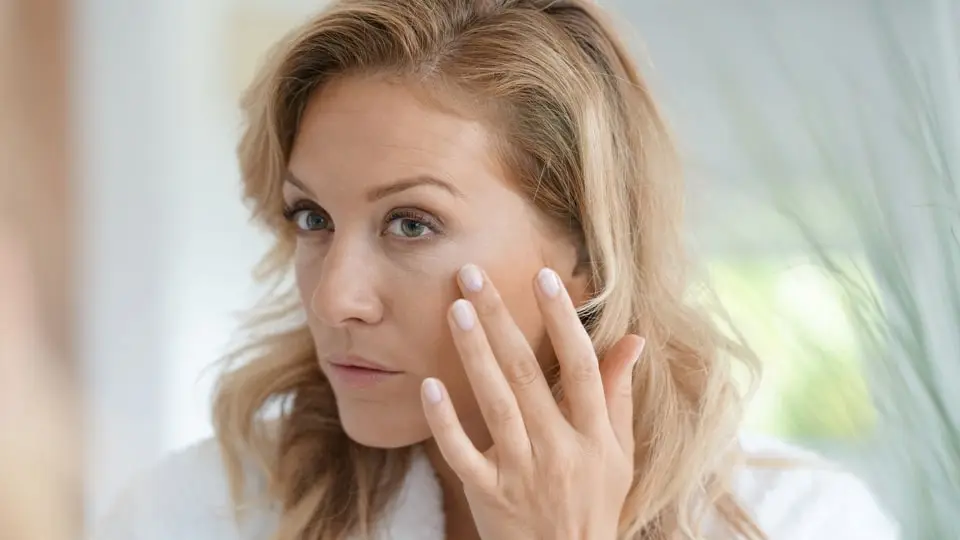Does alcohol age you? If you struggle with alcohol abuse, it’s not just the hangover making you feel achy and look haggard. You could be suffering from the aging effects of alcohol. Alcohol impacts your health on many levels, and the effects of alcohol on skin and aging can make you feel less than your best. Many people experience renewed vitality in recovery as their bodies begin to heal from these detrimental effects of alcohol.
The Effects of Alcohol on Skin and Aging
Everyone’s appearance changes as they age. But alcohol’s effects on skin and aging can make you look older prematurely.
Burning Tree Ranch Offers the Best Long Term Dual Diagnosis Treatment for the Chronic Relapser
How Does Alcohol Age Your Skin?
Youthful skin is moist, plump and elastic. As we age, we lose collagen and flexibility in our tissues, leading to sagging skin and wrinkles.
Because alcohol dehydrates you, it saps your body of the moisture that it needs to keep the skin supple. Alcohol also diminishes the levels of certain essential vitamins and minerals that play an essential role in keeping your skin healthy. For example, as your vitamin A levels are depleted, your collagen levels also suffer. As a result, you may develop wrinkles prematurely.
As a vasodilator, alcohol expands your blood vessels. With long-term alcohol use, some people develop red patchy areas on their skin and conspicuous blood vessels on their face. Their natural skin tone is replaced with a permanent ruddiness.
Alcohol’s Effects on the Hair
Thinning hair can make you look older. Although there is no evidence that alcohol causes hair loss, it may contribute to balding. Heavy, chronic alcohol use causes nutritional deficiencies and hormonal imbalances. These deficits can cause your hair to fall out more rapidly than usual.
At an addiction treatment center, you’ll focus on your health and nutrition. As you nourish yourself, you may notice that your hair fills out again. Alcohol-induced temporary hair loss can take six to nine months to reverse itself after you stop drinking and restore your wellness.
What Does Alcohol Do to Your Eyes?
Arcus senilis is a light-colored ring that appears on the border of your iris as you get older. Age is a risk factor, but most people don’t exhibit this sign of aging until they’re close to 80 years old. However, people with chronic alcohol abuse are more likely to get arcus senilis as early as 60 years of age.
Alcohol Interrupts Your Body’s Healing Processes
The body heals more slowly as you age. This delayed healing response contributes to inflammation, chronic pain and recurrent infections. Alcohol abuse can also slow healing processes. This can affect your personality, making you act and feel older than you are.
Alcohol Impairs Sleep Quality
One of the links between alcohol and aging involves the chemical’s effects on your sleep quality. The average adult should spend about one-third of their life sleeping. Your body undergoes a variety of restorative processes when you sleep. But alcohol interrupts your sleep cycles. Even low alcohol reduces your sleep quality by almost 10%.
Although you may pass out after a night of heavy drinking, that deep sleep isn’t as restorative as the REM sleep that you miss out on. Drinking regularly can impair your sleep in the long term.
Impaired sleep can lead to other health problems, including:
- Dementia
- Heart problems
- Stroke
- Elevated cortisol levels
- Reduced immune function
When you’re not sleeping well, your body shows it. People may tell you that you look tired because your face reflects your sleep deprivation. Hanging eyelids, red eyes, puffy or dark undereye circles and pale skin are signs that you’re getting poor quality sleep. These consequences also make you look older.
Alcohol Increases Stress Hormones
Consuming alcohol increases the secretion of cortisol, a stress hormone. This leads to inflammation, which inhibits many of your body’s healing processes. Chronic inflammation breaks down the proteins that keep your skin flexible and vibrant. You may develop wrinkles, and your skin may look heavy or dull.
Stress also disturbs your skin’s protective barrier. Your skin becomes more sensitive to environmental influences and heals more slowly. Therefore, your risk of developing a chronic skin condition increases.
The Gut’s Connection to Alcohol and Aging
You can’t ignore the digestive system when you’re discussing alcohol and aging. Your intestinal health is linked to your psychological and physical health. Maintaining a healthy gut biome reduces inflammation and promotes healing. When the environment in your gastrointestinal tract is balanced, you’ll also have better looking skin and hair.
But alcohol wreaks havoc on the digestive system. As it changes the makeup and function of the gut microbiota, this drug induces oxidative stress. Research has shown that oxidative stress is one of the key factors in aging. Oxidative damage affects every system in the body, leading to progressive decline.
Alcohol also damages the liver and pancreas, which are necessary for proper digestive function. When these organs are impaired, you’re more likely to develop diabetes and high cholesterol. You may gain weight and have a hard time losing it, making you feel older than your years.
Recovery Can Rewind the Years
Alcohol and aging go hand in hand. Aging is defined as a progressive decline in tissue and organ function, and alcohol stimulates this decline regardless of your age.
Although consuming the substance doesn’t make you skip birthdays, it does increase undesirable health issues that often plague older people. What’s more, people who suffer from alcohol use disorder may neglect their health in other ways. This exacerbates certain medical issues that might otherwise remain at bay in someone of your age.
At Burning Tree Ranch, a long-term residential treatment center, we can’t make you any younger. But we can guide you through a personalized, holistic treatment program that restores your wellness and reduces your risk of relapse. As you progress, you may notice that you look and feel more energetic, dynamic and youthful.

